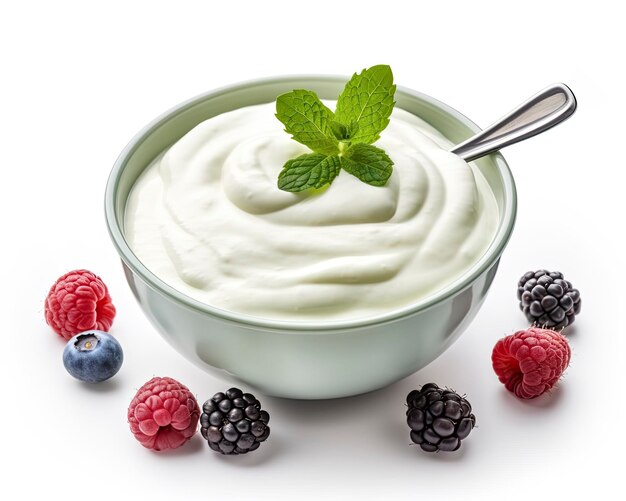Yogurt is a popular food choice for its creamy texture, tangy flavor, and health benefits. But does yogurt contain caffeine? This question might seem surprising, especially for those trying to manage their caffeine intake. Caffeine, a natural stimulant found in coffee, tea, and chocolate, is something many people track closely. Understanding which foods and drinks include caffeine is essential for maintaining energy levels and avoiding overconsumption. So, does yogurt naturally contain caffeine? Let’s dive into the details and uncover the truth about yogurt and caffeine content.
Understanding Caffeine in Our Diet
Caffeine is a well-known stimulant that affects the brain and central nervous system. Many people consume caffeine for its energy-boosting effects. However, too much caffeine can lead to anxiety, insomnia, and other health issues. This is why understanding the caffeine content in foods is essential.
Why Knowing Your Food’s Caffeine Content Matters
Caffeine intake varies greatly from person to person. Knowing how much caffeine you’re consuming helps you stay within safe limits. Most adults should aim for no more than 400 mg of caffeine per day. Even small amounts in unexpected sources can add up quickly, making it important to identify hidden caffeine in foods like yogurt.
Does Yogurt Naturally Contain Caffeine?
Plain yogurt, made by fermenting milk with live bacteria, does not naturally contain caffeine. However, the story changes when additional ingredients like coffee or chocolate are added. To understand this better, let’s look at how yogurt is made and explore the caffeine content of different types.
The Basics of Yogurt Production
Yogurt is made by heating milk, adding live bacterial cultures, and allowing fermentation. The process gives yogurt its characteristic tangy taste and thick texture. Since milk does not naturally contain caffeine, plain yogurt is completely caffeine-free.
Caffeine Content in Plain Yogurt
Plain yogurt, whether regular or Greek-style, contains no caffeine. Its ingredients are typically limited to milk and bacterial cultures. For those avoiding caffeine, plain yogurt is a safe choice.
Flavored Yogurts and Caffeine
Flavored yogurts introduce new possibilities for caffeine content. Popular flavors like vanilla, strawberry, and blueberry are typically caffeine-free. However, some flavored yogurts include coffee or chocolate, which are natural sources of caffeine.
Coffee-Flavored Yogurts: A Hidden Source of Caffeine
Coffee-flavored yogurts are a popular trend among coffee lovers. While these options offer a unique taste, they also introduce caffeine into the mix.

Dannon Coffee Yogurt: 32 mg of Caffeine per Serving
One serving of Dannon Coffee Yogurt contains approximately 32 mg of caffeine. This is comparable to a small amount of brewed coffee, making it important to account for this in your daily intake.
Chobani Coffee & Cream Greek Yogurt: Approximately 2.56 mg per 5.3 oz
Chobani’s Coffee & Cream Greek Yogurt contains a smaller amount of caffeine—around 2.56 mg per 5.3 oz serving. While it’s a modest amount, it’s still worth noting for those who are sensitive to caffeine.
Other Flavored Yogurts: Do They Contain Caffeine?
Beyond coffee flavors, some yogurts with chocolate or mocha flavors may also contain small amounts of caffeine. Always check the ingredient label to confirm. If caffeine is listed, it’s typically present in minimal amounts.
Caffeinated Dairy Products Beyond Yogurt
Yogurt isn’t the only dairy product where caffeine can be found. Let’s look at other caffeinated options in the dairy aisle.
Coffee Ice Cream and Frozen Yogurt
Coffee ice cream and frozen yogurt are common sources of caffeine. A serving can contain anywhere from 10 to 45 mg of caffeine, depending on the brand and flavor. These frozen treats are delightful but can sneak caffeine into your diet.
Caffeine Content in Popular Brands
Brands like Häagen-Dazs and Ben & Jerry’s often include coffee-flavored options with varying caffeine levels. Some flavors contain as much caffeine as half a cup of coffee, so it’s important to enjoy them in moderation.
Caffeinated Yogurt Drinks
Caffeinated yogurt drinks combine the convenience of a beverage with the nutrition of yogurt. However, these products often come with significant amounts of caffeine.
Dannon Oikos Pro Fuel Vanilla: 100 mg of Caffeine per 10 oz Bottle
This protein-packed yogurt drink contains a hefty 100 mg of caffeine per 10 oz bottle. It’s designed as a pre-workout option, offering both energy and nutrition. However, this amount of caffeine is similar to a standard cup of coffee, so it’s not ideal for those avoiding stimulants.
Related to Read: Is Yogurt Good for Gut Health?
Health Implications of Caffeine in Dairy Products
Caffeine is commonly associated with coffee, tea, and energy drinks, but it also makes its way into certain dairy products. While these caffeinated options can be enjoyable, it’s essential to consider their potential health impacts. Factors such as age, pregnancy, and individual sensitivity to caffeine play a significant role in determining its effects. Let’s explore the broader implications of consuming caffeine through dairy products like yogurt.
Daily Caffeine Intake Recommendations
The FDA recommends a daily caffeine limit of 400 mg for most adults. This is roughly equivalent to four 8-ounce cups of coffee. For children and adolescents, caffeine intake should be minimal, as their smaller body size and developing systems make them more sensitive to its effects. Pregnant women are advised to limit caffeine consumption to 200 mg per day to reduce the risk of complications. Knowing how much caffeine is in dairy products can help maintain a balanced diet.
Potential Effects on Children and Pregnant Women
Caffeine can have significant effects on vulnerable groups such as children and pregnant women.
- In Children: Even small amounts of caffeine can cause restlessness, anxiety, and disrupted sleep. Over time, high caffeine consumption may interfere with growth and development.
- During Pregnancy: Excessive caffeine may lead to low birth weight or premature delivery. It can also cross the placenta, potentially impacting the baby’s heart rate and metabolism.
Balancing Dairy Consumption with Caffeine Sensitivity
For those sensitive to caffeine, consuming dairy products like coffee-flavored yogurt or caffeinated drinks might cause symptoms like jitteriness or insomnia. Balancing your diet means being mindful of both your caffeine intake and the nutritional benefits of dairy. Opting for non-caffeinated yogurt or homemade options can help minimize exposure.
How to Identify Caffeine Content in Yogurt
Understanding what’s in your yogurt is crucial if you’re trying to avoid caffeine. Knowing how to read labels and recognize key ingredients can simplify the process.

Reading Nutrition Labels Effectively
Nutrition labels provide detailed information about ingredients and additives. Look for caffeine listed directly or as part of a coffee or chocolate flavoring. Some brands even specify the exact caffeine content per serving.
Recognizing Ingredients That Indicate Caffeine Presence
Be aware of ingredients that are natural sources of caffeine, such as:
- Coffee
- Espresso
- Cocoa powder
- Chocolate flavoring
If these appear on the label, the product likely contains caffeine.
Related to Read: Is Yogurt Good for Acid Reflux? A Complete Guide
Alternatives for Those Avoiding Caffeine
If you’re looking to enjoy yogurt without worrying about caffeine, several alternatives can meet your needs.
Non-Caffeinated Yogurt Options
Plain yogurt and most fruit-flavored yogurts are free of caffeine. Brands like Chobani, Dannon, and FAGE offer a wide range of options that focus on natural ingredients without stimulants.
Homemade Yogurt Recipes
Making yogurt at home is an excellent way to control the ingredients. Here’s a simple recipe:
- Heat milk to 180°F and let it cool to 110°F.
- Add a yogurt starter or plain yogurt with active cultures.
- Allow the mixture to ferment for 8–12 hours in a warm environment.
- Refrigerate and enjoy!
Homemade yogurt is naturally caffeine-free unless you choose to add coffee or chocolate for flavor.
Conclusion
Making informed choices about caffeine in dairy products helps you maintain a balanced and healthy diet. By understanding nutrition labels, recognizing potential sources of caffeine, and exploring non-caffeinated alternatives, you can enjoy the benefits of yogurt without compromising your dietary goals. Whether you’re managing sensitivity or aiming to stay within daily caffeine limits, being proactive is key.
FAQs
1. Does flavored yogurt always contain caffeine?
No, not all flavored yogurts contain caffeine. Most fruit-flavored yogurts are caffeine-free. However, those with coffee, chocolate, or mocha flavors often have small amounts of caffeine. Always check the ingredient list to be sure.
2. How can I avoid caffeine in dairy products?
Stick to plain yogurt or fruit-flavored options without added coffee or chocolate. Reading nutrition labels is essential. Additionally, homemade yogurt is a great way to ensure your yogurt is caffeine-free.
3. Are caffeinated yogurts safe for people with heart conditions?
It depends on the caffeine content and individual health factors. People with heart conditions should limit their caffeine intake, as it can increase heart rate and blood pressure. Consult a doctor if you’re unsure about specific products.
4. Is it better to avoid caffeine entirely during pregnancy?
While it’s not necessary to eliminate caffeine completely, pregnant women should limit their intake to 200 mg per day. Opt for caffeine-free yogurt and other dairy products to stay within this limit.

